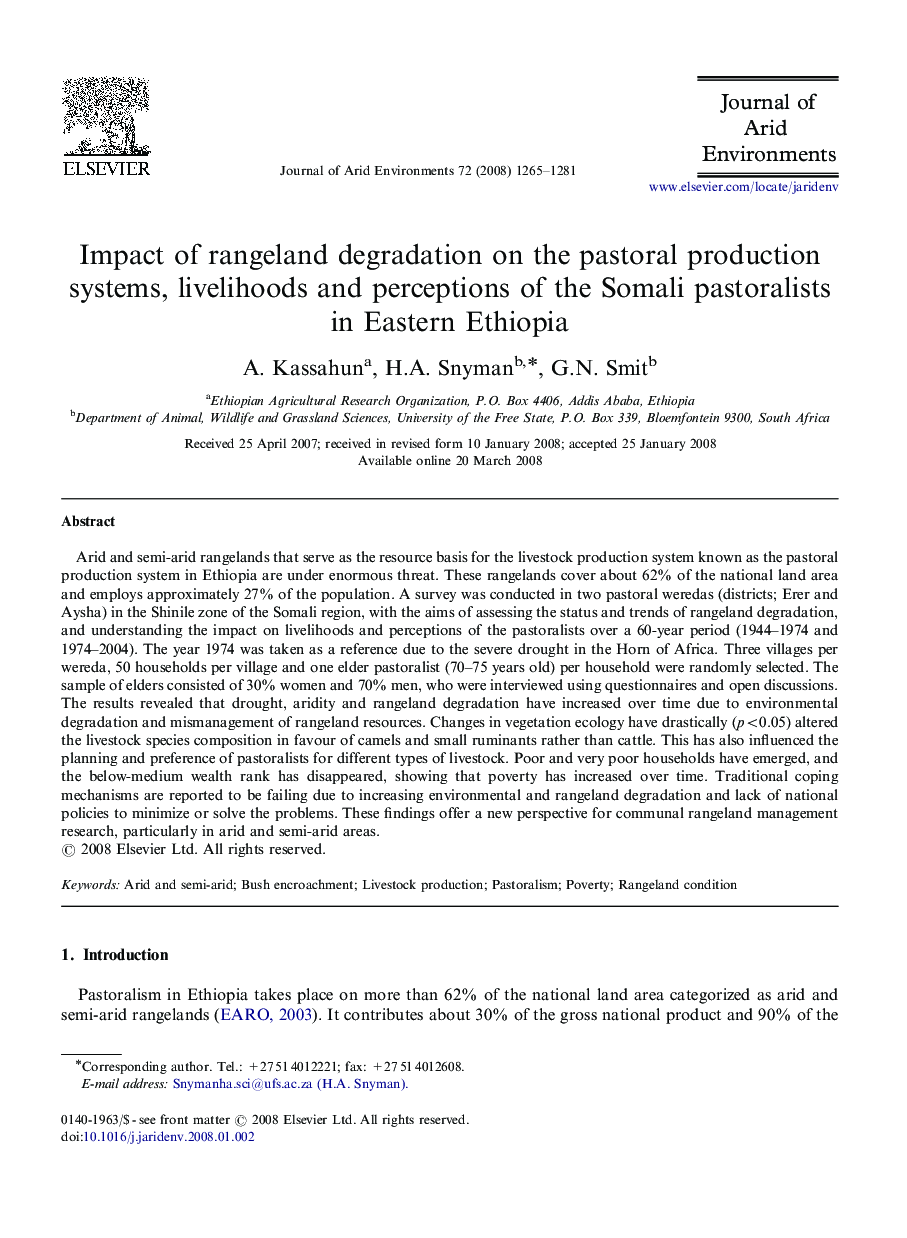| Article ID | Journal | Published Year | Pages | File Type |
|---|---|---|---|---|
| 4393929 | Journal of Arid Environments | 2008 | 17 Pages |
Arid and semi-arid rangelands that serve as the resource basis for the livestock production system known as the pastoral production system in Ethiopia are under enormous threat. These rangelands cover about 62% of the national land area and employs approximately 27% of the population. A survey was conducted in two pastoral weredas (districts; Erer and Aysha) in the Shinile zone of the Somali region, with the aims of assessing the status and trends of rangeland degradation, and understanding the impact on livelihoods and perceptions of the pastoralists over a 60-year period (1944–1974 and 1974–2004). The year 1974 was taken as a reference due to the severe drought in the Horn of Africa. Three villages per wereda, 50 households per village and one elder pastoralist (70–75 years old) per household were randomly selected. The sample of elders consisted of 30% women and 70% men, who were interviewed using questionnaires and open discussions. The results revealed that drought, aridity and rangeland degradation have increased over time due to environmental degradation and mismanagement of rangeland resources. Changes in vegetation ecology have drastically (p<0.05) altered the livestock species composition in favour of camels and small ruminants rather than cattle. This has also influenced the planning and preference of pastoralists for different types of livestock. Poor and very poor households have emerged, and the below-medium wealth rank has disappeared, showing that poverty has increased over time. Traditional coping mechanisms are reported to be failing due to increasing environmental and rangeland degradation and lack of national policies to minimize or solve the problems. These findings offer a new perspective for communal rangeland management research, particularly in arid and semi-arid areas.
